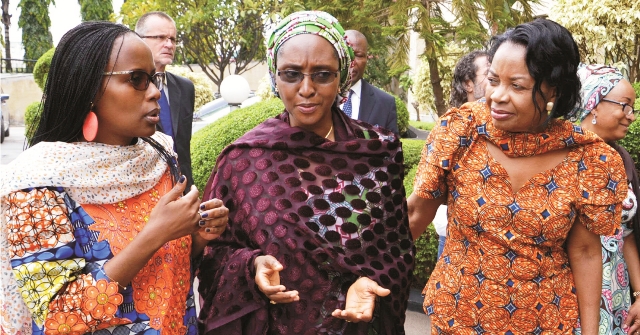Business
BoI, EFCC Resolve N9bn Cement Fund Probe

The Bank of Industry
(BoI), on Monday said that investigation over alleged N9 billion misapplied cement fund by the Economic and Financial Crimes Commission (EFCC) has been resolved.
This was revealed in a statement from the bank released on Monday in Lagos.
According to the statement, parties to the transaction have addressed issues raised with new terms reached on managing the funds which grew from N9 billion in 2011 to N13.2 billion as at June 17.
It said that the bank was appointed in 2009 to manage the fund that accrued from levies on imported cement for the development of the country’s cement industry.
“As at when the funds were released, BoI granted loans to entrepreneurs in the cement value chain, specifically for investment in risk assets in the cement industry’s value chain.
“Between 2011 and 2015, the federal government transferred N9.6 billion to BoI based on earlier scheme as approved by the federal government.
“When the Cement Technology Institute of Nigeria (CTIN) was later established, BOI was in 2013 asked to transfer the fund to CTIN’s account with a private commercial bank, a directive that was not carried out by the then management of the bank.”
It said that in late 2015, CTIN petitioned the Presidency over the fund, following which an investigative panel was established.
The statement, however, said that BoI’s management resolved the matter amicably with CTIN in February, with the agreement that an interest rate of eight per cent should be applied to the fund.
It said that the fund grew to N12.3 billion as at December 2015.
“The management of the Bank had since Feb. 2016 met and agreed with the Chairman of the Board of CTIN and President of Dangote Group, Alhaji Aliko Dangote, on further utilization of the fund, based on agreement by the two parties.
“Going forward, effective from Feb. 17, BOI and CTIN agreed that the bank should invest the sum that has now risen to N13.2 billion in the money market on behalf of the institute at an interest rate of nine per cent,” the statement said.
It said that the bank and CTIN agreed that it was better for the fund to be managed by a federal government-owned bank rather than a private owned commercial bank.
The statement said that the bank had furnished EFCC with relevant documents since inception of the fund in 2009 and documentary evidence that the matter had been resolved between it and CTIN in February.
Business
NCDMB, Jake Riley Empower 250 Youths On Vocational Skills

Business
NUJ Partners RSIRS On New Tax Law Education

Transport
Nigeria Rates 7th For Visa Application To France —–Schengen Visa

-

 Sports1 day ago
Sports1 day agoArsenal Women End Man City’s Invincibility
-

 Sports1 day ago
Sports1 day agoU-20 WWC: Falconets claim qualifier win
-

 Sports1 day ago
Sports1 day agoInsurance Deepen Enyimba’s Trouble
-

 Sports1 day ago
Sports1 day agoYouth Olympics preparation Gears up
-

 Environment1 day ago
Environment1 day agoRivers State Government Suspend Fire Service Collection Levies
-

 Sports1 day ago
Sports1 day agoTornadoes Set For NPFL exit over Stadium Ban
-

 Sports1 day ago
Sports1 day agoCologne Youth Team Set Crowd Record
-

 Environment1 day ago
Environment1 day agoLASEMA pushes attitudinal change to cut fire outbreaks in Lagos

